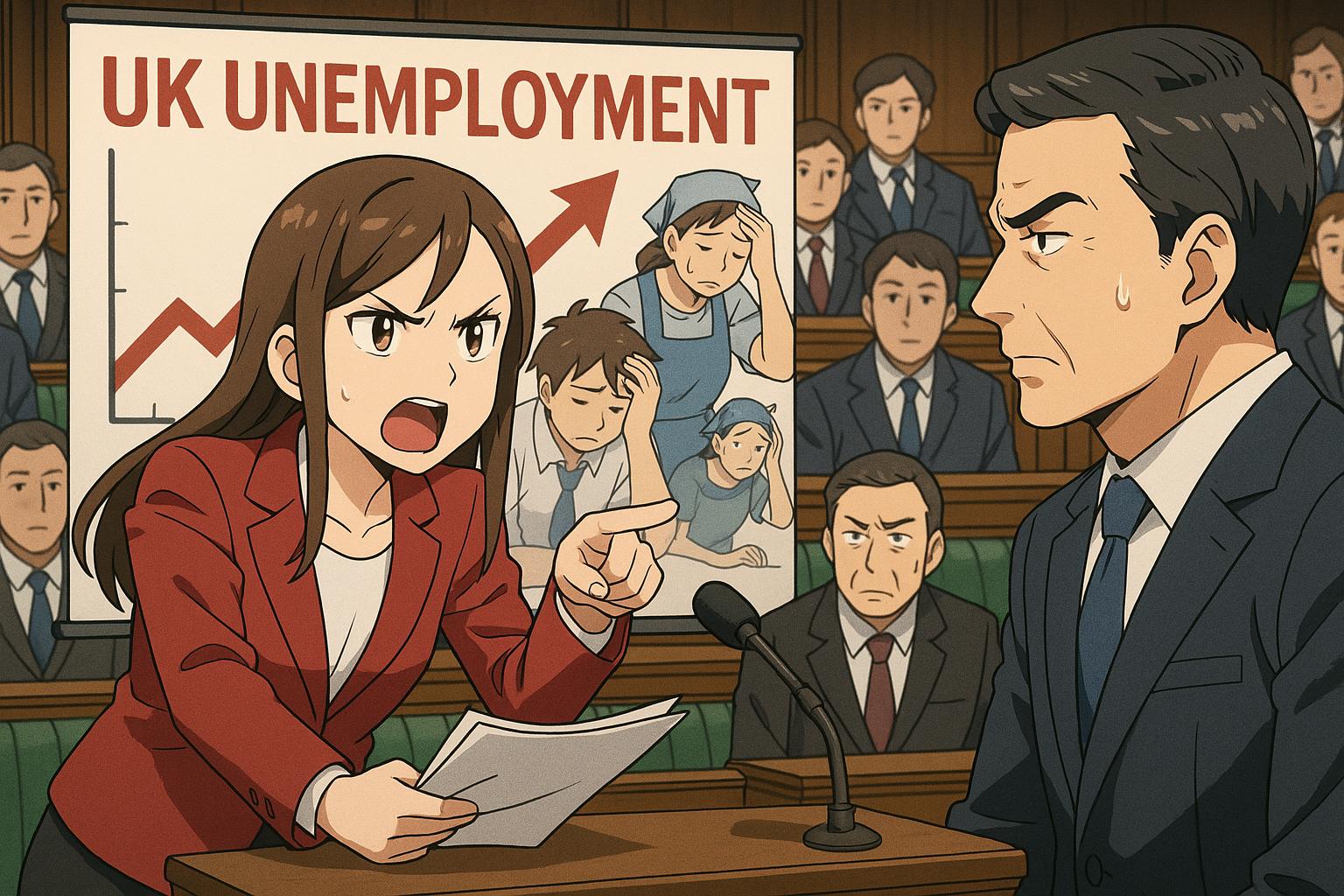In a recent session of Prime Minister's Questions, Labour leader Keir Starmer was put under intense scrutiny by Kemi Badenoch, who called attention to the alarming rise in unemployment figures during his leadership. Badenoch’s pointed questions aimed to expose Starmer's inability to guarantee a decrease in unemployment by this time next year, illustrating the stark reality facing workers across the UK. Instead of addressing these pressing concerns head-on, Starmer pivoted, highlighting trade agreements with countries like India and the United States while touting his government’s so-called achievements—an approach that feels increasingly disconnected from the struggles of everyday Britons.
Badenoch’s criticisms were underscored by significant job cuts at major UK retailers, such as Sainsbury’s and Tesco, combined with a glaring statistic from the Office for National Statistics that shows a decrease of approximately 100,000 jobs compared to the previous year. These figures, reported before what some are calling a "Jobs Tax," raise further concerns about the Labour government's direction. Critics argue that such proposed tax increases may stifle economic recovery and exacerbate the already precarious job market.
In the broader context of economic stagnation and rising worklessness, an astonishing estimated 9.4 million people are currently economically inactive, including 2.8 million succumbing to long-term illness. With these crippling figures, the urgency for effective policies to reintegrate individuals into the workforce grows louder. Starmer may claim a commitment to economic growth, but the layered complexities of the job market challenge the credibility of his administration's ambitions.
Badenoch's comments echoed the sentiments expressed by her constituents during visits to local establishments like Farley Hospice, which are already feeling the pinch of financial constraints. She warned that the ongoing tax burden threatens the viability of community services, drawing a crucial link between government policy and the real impact on everyday lives.
Starmer’s handling of the job crisis evokes historical patterns of Labour's tenure, which have often resulted in dismal unemployment figures when they leave office. This raises serious questions about the effectiveness of Starmer’s policies. Public skepticism continues to swell, suggesting that if Labour intends to mount a cohesive challenge to the opposition, it must not only articulate a clear vision for job creation but also confront the structural issues that have fed into chronic economic inactivity.
Amid an economy still struggling with the aftershocks of the pandemic and soaring living costs, the pressure on Starmer's government is mounting. As he navigates this turbulent political terrain, the effectiveness of his strategies will significantly shape his administration's legacy.
The critical issues surrounding employment figures and job-related policies underline the urgent need for transformative action that addresses immediate job losses while tackling systemic economic inactivity. This is a pivotal moment for sound governance, one that should prioritise job creation and resilience in a nation facing these complex challenges on multiple fronts.
Source: Noah Wire Services
